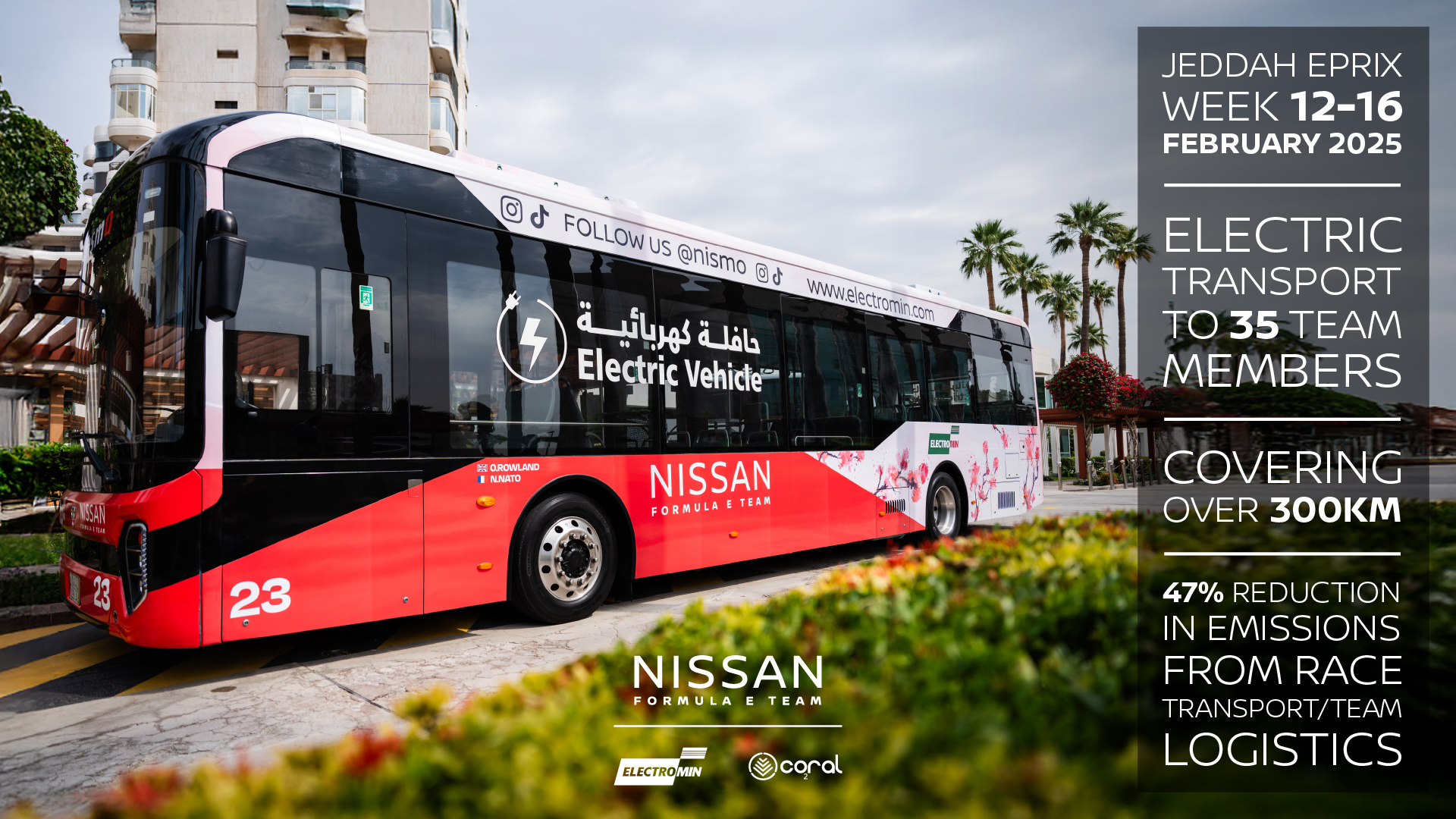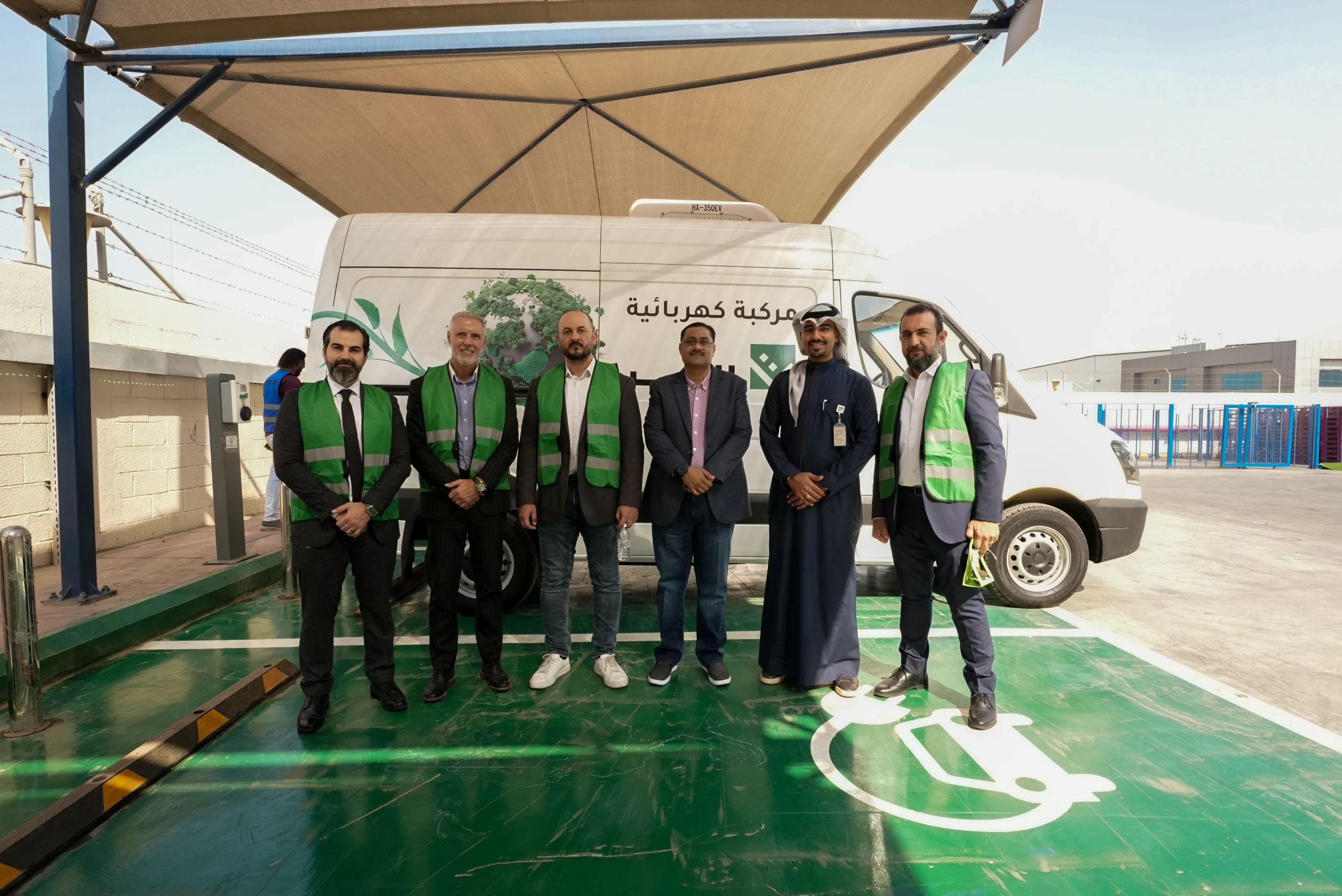
Sustainable Logistics in KSA: Insights from Formula E and TAMER
In this latest blog of our Electromin and Nissan Formula E Team series, we explore the complex logistics that keep this cutting-edge sport moving. Managing logistics for a global sport like Formula E requires an intricate dance of coordination, innovation, and adaptability. From transporting cars across continents to managing team movements, the challenges are immense and showcase the importance of sustainable solutions.
Formula E: Unique Logistics Challenges
Unlike traditional motorsports, Formula E teams do not have the luxury of keeping their cars between races. Once the chequered flag drops, the clock starts ticking. Damaged cars must be repaired or declared as needing repairs at the next location. This adds an additional layer of complexity to logistics, handled with precision by the sport’s logistics partner, DHL.
Further complicating logistics is the fact that all freight — from race cars and charging equipment to team supplies — is centrally managed by Formula E itself. This coordinated approach ensures teams have access to everything they need at each race, but it also demands meticulous planning and adaptability. Formula E’s logistics strategy alternates between air, road, and sea freight, ensuring optimal efficiency while balancing environmental considerations.
By aligning sustainable practices with logistical precision, Formula E continues to set a powerful example for global sporting events.

A Sustainable Transportation Partnership
For Nissan Formula E Team, logistics isn’t just about equipment—it’s also about people. Ensuring the team arrives at the track promptly and sustainably is crucial. During rounds 3 and 4 in Jeddah, Electromin played a pivotal role by supplying a specially branded TAM Vero12 electric bus, capable of seating 35 passengers, to transport the team from the airport to their hotel and the racetrack for a full week of race activities.
During the race week in Jeddah, the bus covered 301km, efficiently operating on a single full charge. A quick 40-minute top-up on a 90kW DC charger ensured it remained ready for any contingencies, however, was not essential for the 422kWh, 340km range bus. The bus’s advanced battery technology enabled it to achieve this rapid charge by maintaining its full charging speed even in the final 20% — a notable innovation since many passenger EVs slow their charging rate to protect the battery from heat and damage.
“Electric commercial vehicles are transforming sustainable logistics, especially for major events like Formula E,” said Mark Notkin, CIO of Electromin. “Our electric bus showcased both performance and reliability, proving that clean transportation can meet demanding logistical requirements without compromise.”
Beyond logistics, this initiative contributed to reducing the team’s overall emissions — a critical factor as Formula E teams must document and manage their environmental impact for an annual sustainability report.
In a world of speed and sustainability, Nissan Formula E Team needs to quickly identify sustainability improvement opportunities and adjust. They can’t waste time on data collection, calculation, and report building. To simplify this process, Nissan Formula E Team works with Coral, a specialist in automated carbon tracking solutions. Coral’s Sustainability Platform automates everything so that the team can drive real climate action every day.
“We love working with Nissan Formula E Team and their partners to drive real climate action,” said Jan van der Kroft, CEO at Coral. “It’s a genuine team effort. We automate all the data collection, calculation, and reporting, enabling Nissan Formula E Team and Electromin to identify improvement areas and get maximum results through mobility electrification.”
Jan added, “By incorporating Electromin’s electric bus into their logistics operations, Nissan Formula E Team reduced its carbon footprint by 47% during the Jeddah E-Prix compared to conventional 45-seater fossil fuel transportation*.”
This collaboration highlights how electric mobility, combined with smart sustainability solutions, can deliver both operational efficiency and meaningful environmental benefits.

Building Sustainable Logistics Solutions in KSA
Electromin’s collaboration with Nissan Formula E Team in Jeddah is part of a larger commitment to revolutionizing transportation across KSA. Beyond passenger transport, Electromin supplies electric commercial vehicles like vans, trucks, and buses to businesses aiming to reduce their carbon footprint.
A key example of this commitment is Electromin’s partnership with TAMER Logistics, a major logistics provider in KSA. TAMER Logistics has officially launched its new fleet of electric vehicles, marking a significant milestone in their commitment to eco-friendly transportation. This fleet, featuring VIKA T500 Electric trucks supplied by Electromin, is set to revolutionize TAMER’s logistics operations by providing a cleaner and more efficient alternative to traditional fuel-powered trucks.
By adopting electric vehicles, TAMER Logistics is actively reducing its carbon footprint while enhancing operational efficiency. The company moves a diverse range of goods for major brands, including consumer goods from the FMCG and retail industry, through to pharmaceuticals, and essential healthcare supplies.
“Supporting TAMER Logistics in their transition to electric trucks is a great example of how we enable our clients to embrace sustainable innovation,” said Mark Notkin. “By integrating EVs into their fleet, TAMER is reducing emissions while boosting efficiency — a shift that demonstrates the real-world impact of cleaner transport solutions in essential supply chains.”
The partnership with Electromin underscores TAMER Logistics’ focus on environmental responsibility and marks the beginning of a long-term collaboration aimed at driving innovation in sustainable logistics solutions.
Another notable project is the upcoming Bus Rapid Transit (BRT) system with Masar, set to launch in 2025. As KSA’s first e-BRT project, this development will highlight the potential of electric mobility for public transportation, further advancing the country’s commitment to sustainable transport infrastructure. See our last blog on innovation for more details of this project
Redefining the Future of Sustainable Logistics
The seamless integration of Electromin’s electric mobility solutions into TAMER logistics and Nissan Formula E Team’s logistics highlights the growing role of EVs in delivering sustainable and efficient transportation. From ensuring the Nissan Formula E Team’s smooth movement during the Jeddah race weekend to supporting TAMER Logistics with electric trucks, Electromin continues to demonstrate how EV solutions can meet the demands of commercial transport without compromise.
Mark concludes; “As we continue to expand our partnerships, we’re excited to build on the success of this season and look forward to providing innovative electric mobility solutions to the Nissan Formula E Team in the future.
By combining performance, efficiency, and environmental responsibility, Electromin is driving the future of logistics across industries in KSA and beyond.
*This impact assessment is based on estimated fuel consumption and emissions factors for a typical 45-seater diesel bus operating over the same route. The actual emissions avoided may vary depending on vehicle model, driving conditions, and energy sources. Coral, Electromin, and Nissan Formula E Team are committed to continuously improving data accuracy and benchmarking methodologies in future events.”
